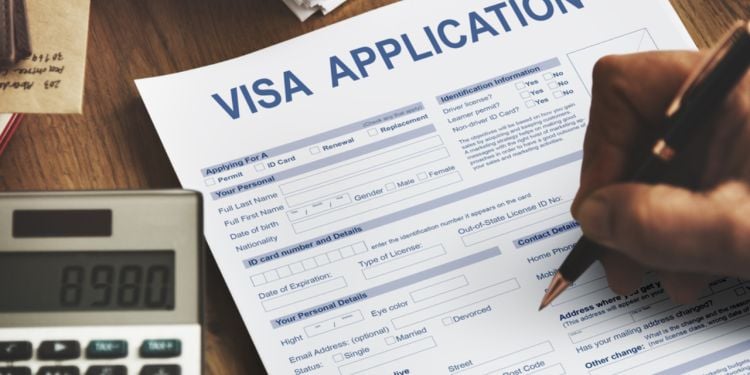
Having won the location jackpot and straddling the crossroads of Europe and Asia, Türkiye has long been a magnet for both tourists and expats. Whether it's for the vibrant urban life, the allure of historical exploration, or the promise of a tranquil coastal retreat, those who visit Türkiye once often find themselves eager to return and stay longer.
While a lot of nationals can travel to Türkiye visa-free, these visits come with time restrictions, letting you stay in the country for a maximum of 90 days. So, if you are looking for a longer stay, navigating the Turkish visa and residency system is crucial. This is what we will be looking into below.
Types of visas to Türkiye
When planning your trip or a longer stay in Türkiye, it is essential that you fully understand the visa options available to you. Each visa type has specific requirements and serves different purposes – and selecting the right option will make your stay in the country more complete and fulfilling.
Here are the key types of visas available when planning a visit to Türkiye.
Tourist visas
Tourist visas for Türkiye typically allow stays of up to 90 days within a 180-day period. The exact duration may vary depending on the applicant's nationality.
Applicants usually need to provide a valid passport, proof of travel itinerary (like hotel bookings and return tickets), and sometimes evidence of sufficient financial means for the duration of their stay.
The application can often be completed online through Türkiye's e-Visa system, which is fast and convenient. For those not eligible for an e-Visa, applications must be made through Turkish embassies or consulates in their home countries.
Work visas
Work visas are issued for the duration of your employment contract. Typically – one to two years.
Key documents include a valid passport, a job offer or contract from a Turkish employer, and relevant qualifications or certificates.
The application process typically involves both the expat applying and the Turkish employer who is hiring them. The employer must first apply to the Ministry of Labor and Social Security in Türkiye. It's important to note that employer sponsorship is crucial for obtaining a work visa in Türkiye. The employer must prove that the position cannot be filled by a Turkish citizen and provide various company documents as part of the application.
Student visas
Student visas are typically issued for the duration of your study program. They can also be issued on a yearly basis and renewed every academic year.
Necessary documents usually include a valid passport, an acceptance letter from a Turkish educational institution, and proof of financial sustainability.
To apply for a student visa, you will first need to be admitted to a university in Türkiye. In a lot of cases, your university will assist you with the visa application process and provide all the needed documentation on their part. Apply as soon as you receive your acceptance letter to avoid delays. It's also advisable to check if any specific health insurance or vaccination requirements apply.
Resident permits in Türkiye
If you plan to stay in Türkiye for a prolonged period of time, you may want to consider applying for a residence permit. Residence permits in Türkiye may be issued on different grounds, from tourism to real estate purchase – and more.
To get a residence permit in Türkiye, you will need to submit your application with the
Directorate General of Migration Management in the region where you plan to reside. You will start by filing an application online and then selecting an in-person appointment date. By the time your appointment date approaches, you will need to have all documentation ready.
Common requirements include a valid passport, proof of address in Türkiye, adequate health insurance, and, depending on the permit type, additional documents like marriage certificates for family permits, university enrollment proof for student permits, proof of accommodation for touristic applications, property deed for applications based on real estate purchase, pension slips, and more.
When your appointment date comes, you will need to bring all the required documents and go through a short interview. During the interview, you may be asked questions about the purpose of your stay or asked to clarify specific points about your documentation.
Applying for a visa to Türkiye
The visa application process in Türkiye is relatively straightforward – provided you approach it methodically. Here's your step-by-step guide to planning your visa application:
Start by identifying the type of visa that suits your travel purpose: tourist, work, student, or residence permit. Each visa type has specific requirements and processes. Make sure to check if you can travel to Türkiye for a short stay visa-free.
You can check the visa requirements for your country on Türkiye's Ministry of Foreign Affairs website.
For short visits, many nationals are eligible for an e-Visa, which is a simpler and faster process. The e-Visa can be obtained through Türkiye's official e-Visa website by completing an online form and paying the fee.
For longer stays or if you are not eligible for an e-Visa, you must apply through a Turkish consulate or embassy.
Gather all required documents, which typically include a valid passport, proof of travel plans (like hotel reservations and return flight tickets), and, depending on the visa type, additional documents like an invitation letter, employment contract, proof of accommodation, pension slips, property deed, etc.
Ensure your passport has at least six months' validity from the date of entry into Türkiye and has at least two blank pages required for visa stamps.
For an e-Visa, submit your application online and wait for the approval, which is often granted within minutes to hours. For a consulate application, schedule an appointment at the nearest Turkish consulate or embassy. Submit your application along with all the required documents.
Pay the related visa fees. These vary based on the type of visa and the nationality of the applicant. For an e-Visa, the fee is paid online during the application process. For consulate applications, the fee is usually paid at the time of the application or during the interview.
Some visa applications may require an interview. Be punctual, dress appropriately, and be prepared to discuss your travel plans and reasons for visiting Türkiye. Be honest and concise in your answers. The interview is a standard part of the process to verify your information and intentions.
Visa fees in Türkiye and processing times
Visa fees
When planning a trip to Türkiye or a longer stay, it's essential to be aware of the costs and waiting times involved.
The fee for a tourist visa can vary significantly depending on your nationality and the specific type of visa you are applying for. For instance, e-Visas typically cost between USD20 to USD60 for most nationalities.
The cost of a work visa is generally higher than that of a tourist visa: this can range anywhere from USD200 to USD500, depending on various factors, including the length of the visa, the type of employment, documentation required, and more.
Student visas are usually cheaper compared to work visas. Some students might even be eligible for a fee waiver or reduced fees based on reciprocal agreements between Türkiye and their home country.
The cost of residence permits varies based on the type and duration of the permit. Short-term residence permits can cost around USD 80-USD100, while long-term permits might have higher fees.
Visa processing times
Tourist visas, particularly e-Visas, are typically processed very quickly, often within 24 hours. In some cases, applicants may receive their e-Visa immediately after completing the application and payment. Processing times for visas applied through Turkish consulates can vary from a few days to several weeks. Factors affecting this include the applicant's nationality, the specific consulate's workload, and the type of visa.
Work and student visas generally take longer to process due to additional documentation and verification. The processing time can range from 2 to 8 weeks.
The processing time for residence permits can take up to 90 days. Factors such as the completeness of the application, the specific type of permit, and local workload can affect processing times.
Keep in mind that the information provided in this article is meant for reference only. As visa fees and processing times are subject to change, make sure you check with the related official sources for the most up-to-date information closer to the time of your application.
Turkish immigration laws
If you frequently travel to Türkiye or plan to stay in the country for some time, it's essential that you are fully familiar with Türkiye's immigration laws.
First and foremost, make sure you always comply with the specific conditions of their visa. This includes restrictions on work for those on tourist visas and reporting requirements for those on longer-term visas.
Second, make sure you are aware of the allowed duration of your stay. For instance, on some visas, you can stay in the country for 30 days per visit. If this is the case, you may need to go on a “visa run” to not overstay your visa.
Now, if you do overstay your visa (which is definitely not recommended), you will need to approach the local immigration authorities upon exiting the country. You will find the immigration office at most big airports across the country. Depending on the length of your overstay, you will most likely be asked to pay a fine. However, overstaying your visa or residence permit can also result in deportation and even a re-entry ban.
Keep in mind that Turkish immigration laws tend to change, and it's important to stay informed about any updates that might affect your legal status. If you are facing complexities in immigration matters, consider seeking legal advice. Many law firms in Türkiye specialize in immigration law and can provide guidance tailored to individual cases. You can also seek assistance from your home country's embassy or consulate in Türkiye. While they cannot intervene in Turkish legal processes, they can provide valuable information and guidance.
Websites like the Directorate General of Migration Management offer comprehensive information on Turkish immigration laws and procedures.
Forums and expat community groups can also be useful resources for advice and shared experiences. Check in with fellow expats and travelers to stay up to date with any updates on immigration and visa procedures. These forums can also be invaluable sources of information regarding your life in Türkiye, useful local contacts, and more.
We do our best to provide accurate and up to date information. However, if you have noticed any inaccuracies in this article, please let us know in the comments section below.












Comments
2Hi. I have a minor criminal record from 30 years ago in the UK. Will this automatically exclude me from gaining long term residency and living in Turkey?
Thanks Andrew
Hello, I am a Turkis citizen but my son is not. We are in Istanbul right now and he has a visitors visa. He would like to extend it to 1 year but we don't know the process. Are there agents that can help with the process? Thanks!